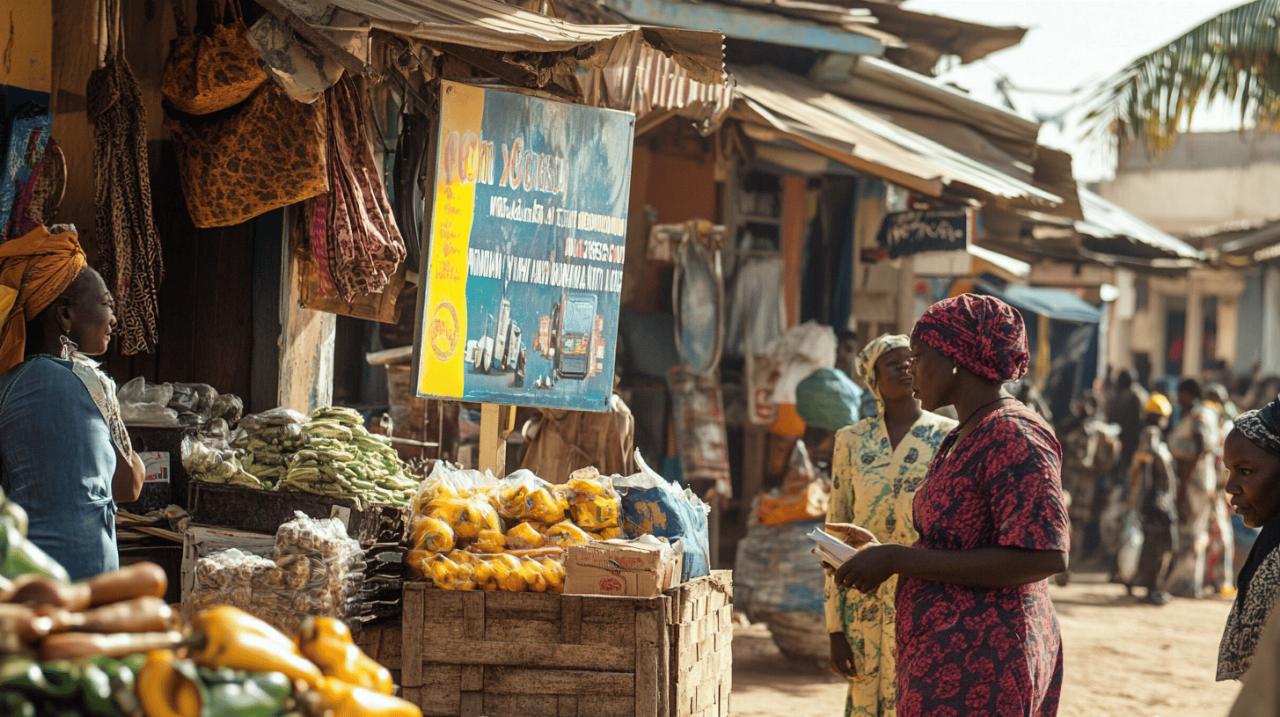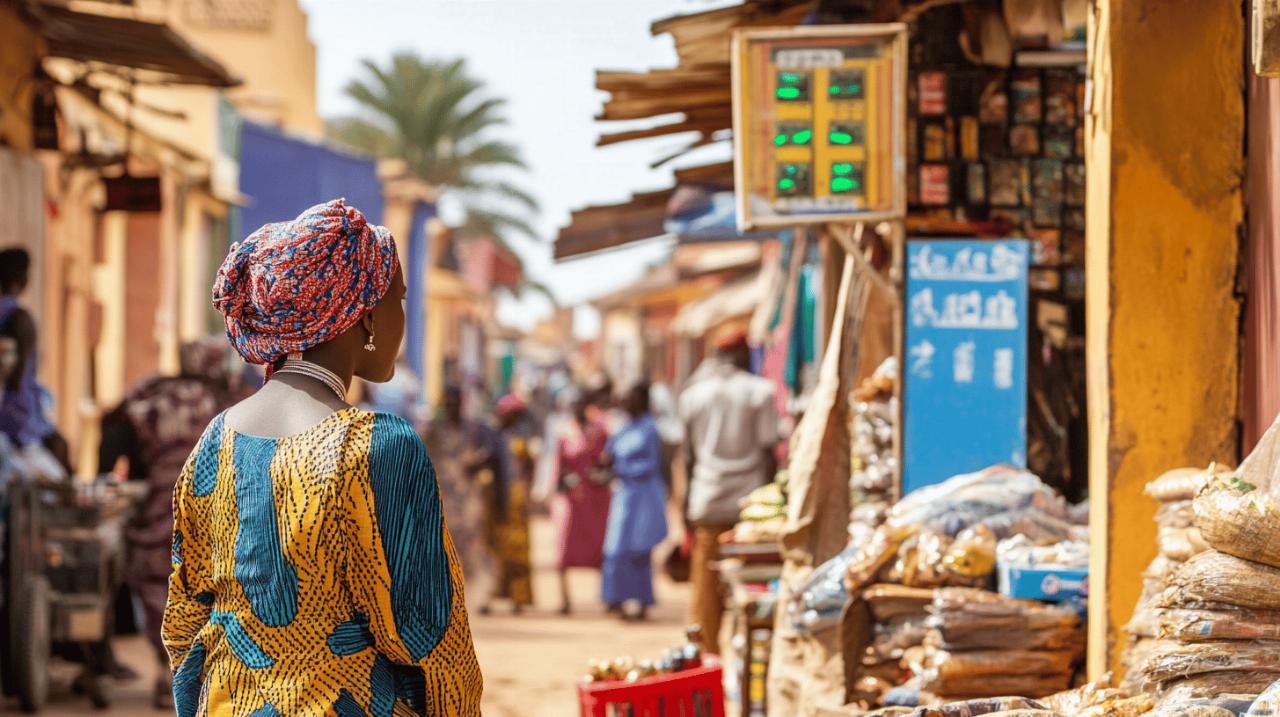Rising Fuel and Electricity Prices in Senegal Deemed ‘Unacceptable’: How Small Businesses Are Struggling to Keep the Lights On
Across Senegal, a perfect storm is brewing as fuel and electricity prices surge to unprecedented levels, leaving citizens and businesses alike reeling from the financial impact. This energy crisis has sparked widespread concern, with many Senegalese citizens describing the situation as simply 'unacceptable' as they struggle to manage their daily lives amidst rising costs.
The growing energy crisis in senegal
The energy landscape in Senegal has dramatically shifted, creating significant challenges for households and enterprises throughout the country. African Energy reports suggest that the situation has evolved into a genuine crisis, with ripple effects touching every aspect of daily life and commerce. The national power company, Senelec, has been grappling with severe financial difficulties that have directly impacted their ability to maintain consistent power supply since at least 2009.
Skyrocketing petrol and electricity costs
Recent months have witnessed a relentless climb in both fuel and electricity prices across Senegal. This upward trajectory has far outpaced wage growth, creating an increasingly unbearable burden for average citizens. What began as a concerning trend has developed into a full-blown crisis, with many families now forced to choose between essential services as their budgets stretch beyond breaking point. The costs have risen so sharply that even previously comfortable middle-class households are feeling the pinch.
Public outrage and grassroots reactions
The steep price hikes have ignited a wave of public discontent throughout Senegalese society. Community gatherings, social media campaigns, and street demonstrations have become increasingly common as citizens voice their frustration with what many perceive as an untenable situation. Local advocacy groups have begun organizing to demand governmental intervention, arguing that access to affordable energy constitutes a basic right rather than a luxury. These grassroots movements reflect the depth of public sentiment regarding what many describe as a failure of national energy strategy.
Impact on Local Businesses and Industries
The energy crisis has struck at the heart of Senegalese commerce, with particularly devastating effects on small and medium enterprises that form the backbone of the local economy. Many business owners report making painful cuts to stay operational as they navigate this challenging landscape. The situation mirrors similar challenges seen in neighboring countries like Ghana and Guinea, where energy insecurity has historically hampered economic development.
Small enterprises fighting to stay afloat
For countless small business owners across Senegal, the surging energy costs represent an existential threat. Local shops, restaurants, and service providers operate on tight margins even in the best of times. Now, with electricity bills sometimes doubling or tripling, many face impossible choices between paying for power or covering staff wages. Some entrepreneurs have resorted to reducing operating hours, working by candlelight during evening periods, or investing in expensive generators that further eat into their profitability. The resilience of these business owners is being tested like never before as they employ increasingly creative strategies to keep their doors open.
Supply chain disruptions and price increases
The energy crisis has triggered a troubling domino effect throughout the Senegalese economy. As businesses face higher operational costs, many have reluctantly passed these expenses on to consumers, resulting in price increases across virtually all sectors. Transportation costs have surged as fuel prices climb, making the movement of goods more expensive and further driving up retail prices. This cycle threatens to create inflationary pressure that could potentially destabilize the broader economy if left unchecked. Industries reliant on consistent power supply face additional challenges from frequent outages, further complicating their ability to maintain productivity.
Renewable Energy as a Potential Way Forward
Amidst the crisis, a silver lining has emerged as interest in sustainable energy solutions grows. The International Finance Corporation has recently launched a Distributed Renewable Energy Atlas, highlighting potential pathways toward energy independence. This shift in thinking reflects growing recognition that traditional energy models may no longer serve Senegal's developing needs. The transition toward renewable resources represents not just an environmental choice but an economic necessity for long-term stability.
Solar power initiatives gaining traction
Solar energy has emerged as a particularly promising avenue for addressing Senegal's power challenges. The country's geographical position provides abundant sunshine, creating ideal conditions for solar power generation. Several communities have begun experimenting with small-scale solar installations that provide limited but reliable electricity independent of the national grid. These early adopters are demonstrating the potential viability of decentralized energy production as a complement to traditional power infrastructure. Companies like Endeavor Energy, which recently appointed a new chief executive, are increasingly looking toward Senegal as a promising market for renewable energy investment.
Barriers to Green Energy Adoption in Senegal
Despite its promise, the path toward renewable energy in Senegal faces significant obstacles. Initial installation costs remain prohibitively high for many individuals and businesses, despite the long-term savings potential. The existing energy infrastructure is primarily designed around traditional power sources, requiring substantial modification to accommodate renewable inputs. Additionally, there remains a knowledge gap regarding the maintenance and optimization of renewable systems, which requires investment in education and training programs. Overcoming these barriers will require coordinated efforts from government, private sector, and international partners committed to sustainable development.
Political Dimensions of the Energy Crisis
The energy situation has inevitably become deeply politicized, with opposition figures seizing upon public discontent to challenge current governance approaches. The crisis has evolved into a touchstone issue that reflects broader questions about economic management and development priorities. As citizens grow increasingly vocal about their dissatisfaction, the political stakes continue to rise for those in positions of authority.
Government policies under scrutiny
Current energy policies face intense examination as the crisis deepens. Critics argue that insufficient investment in infrastructure maintenance and development has contributed significantly to the present difficulties. Questions have emerged about subsidy structures, regulatory frameworks, and partnerships with international energy providers. The government faces mounting pressure to demonstrate tangible action beyond rhetorical responses. The situation has sparked debate about the appropriate balance between market mechanisms and governmental interventions in essential service sectors.
Calls for Wage Adjustments and Better Living Standards
As energy costs consume an ever-larger portion of household budgets, demands for compensatory wage increases have grown louder across Senegal. Labor organizations have begun organizing around the principle that income levels must reflect the actual cost of living, including essential services like electricity. Public sector workers have been particularly vocal, arguing that government employees cannot be expected to maintain services while their own living standards deteriorate. These economic demands have become intertwined with broader calls for improved governance and more equitable distribution of national resources.
Comparing senegal's energy challenges with other african nations
The current surge in fuel and electricity prices across Senegal has created significant distress among citizens and businesses alike. Senelec, the national electricity company, continues to grapple with financial difficulties that directly impact power supply reliability, a problem dating back to at least 2009. Small businesses throughout the country are particularly vulnerable to these price hikes, with many struggling to maintain operations as energy costs eat into already thin profit margins. This energy crisis has sparked public outcry, with many Senegalese calling the situation 'unacceptable' and demanding government intervention through improved energy policies and wage increases to offset the rising cost of living.
Morocco, Ghana, and Guinea: Different Approaches to Energy Security
Looking across the African continent, several nations demonstrate varying approaches to addressing energy security challenges. Morocco has made substantial progress in its energy sector through strategic deals and international recognition, though questions remain about resource management in the Western Sahara region. Ghana has taken a different path, working with entities like Endeavor Energy, which recently appointed a new chief executive to oversee power projects in the country. Meanwhile, Guinea continues to develop its own unique strategy for managing resources and power generation. These contrasting approaches provide valuable context for understanding Senegal's current predicament, highlighting how different governance models and resource management strategies yield varying results in terms of energy affordability and reliability.
Lessons from Regional Power Strategies and Resource Management
The International Finance Corporation's recent launch of the Distributed Renewable Energy Atlas marks a significant step toward mapping alternative energy solutions across African nations. This initiative could offer Senegal a blueprint for diversifying its energy portfolio beyond traditional fossil fuels. The growing interest in renewable energy sources, particularly solar power, represents a promising path forward for Senegal to reduce dependency on costly imported fuels. By studying the successes and failures of neighbouring countries' power strategies, Senegalese policymakers might identify more sustainable approaches to resource management and energy production. The current crisis presents not just a challenge but an opportunity to reimagine Senegal's energy future, potentially transforming financial difficulties into a catalyst for innovation in African energy systems.
